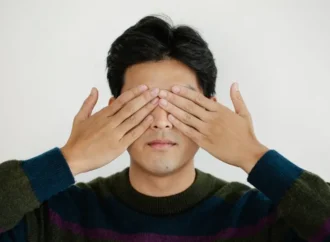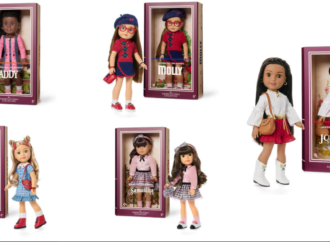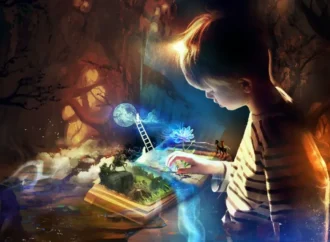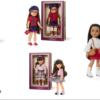“Man,” philosopher Aristotle declared long ago, “is a political animal.” Perhaps too political.
A dozen years ago, when Sonny Bunch was the managing editor of “The Washington Free Beacon,” he expressed his frustration with people who are so consumed by politics that they have become incapable of separating it from other aspects of their lives, such as their relationships with friends and family. “I’m not talking about people getting worked up about politicians,” he wrote. “[W]e live in divided times, so things are bound to get heated when talking about elected officials. I’m talking about people who say ‘I want nothing to do with [Person X] because he is a conservative/liberal/Republican/Democrat in his personal life.”
We do indeed live in divided times – more divided than when Bunch wrote that piece. Based on my experience, Americans now are more polarized about politics and culture (and the intersection thereof) than at any time since the 1960s, and possibly even since the 1860s. The nonstop din of our ubiquitous social media has broadened and intensified that polarization, as armies of political foot soldiers of the left and right skirmish online, pointlessly spewing 280-character vitriol at each other. There is precious little political engagement anymore, online or off, that does not either swiftly descend into plain bullying or begin that way. Bullying earns enemies, not converts, and begets bullying in return.
For people obsessed with politics, friendships – and even more intimate relationships – can narrow into political alliances. This is no way to foster social harmony. As Bunch put it,
[P]oliticizing every aspect of your life, allowing politics to determine your every move, and judging everyone you meet online and in person by how stridently they agree with the positions you support—is immensely, horribly destructive to the very fabric of our society.
He quoted from the blog of author Rod Dreher:
What a strange culture we live in, in which people are expected to approve of everything those they love believe in and do, or be guilty of betraying that love. I have friends and family whose core beliefs on politics, sexuality, religion, etc., are not the same as my own, and it would not occur to me in the slightest to love them any less because of it. … People are somehow more than the sum of their beliefs and actions.
This can extend to a narrowing of our cultural tastes as well. “How can we expect to have a fully functioning society,” Bunch wondered, “if we spend all of our time adjudicating whether or not the people we read and the culture we consume is of the correct political persuasion?”
I would take his argument further and assert that politicizing every aspect of your life is corrosive not only on a societal level but on a personal one as well.
I’ve experienced it myself. I make my living at least partially by publicly engaging in the clash of political ideas and ideologies, sometimes to a combative degree, and it’s easy to get sucked into the bottomless vortex of politics at the expense of other interests, other pursuits, other dimensions of the human experience – unless you mindfully retreat from the brink. Otherwise, you become the sort of person Bunch complained about, who “can’t set aside their political hangups enough to enjoy a realm unrelated to politics.”
I can confirm this, tragically. I have found myself at parties with people who are as obsessive about politics as sports fans are about their favorite pastimes. They can talk all night about the players and odds of every congressional race in the country – just as sports fans can tell you the rankings and stats of every college team in the country – but they have zero interest in, or are incapable of, discussing non-political books or art or films. There is something about politics that can become so all-consuming, you don’t even realize how narrowly it ultimately defines you and your interests, limiting your appreciation of other aspects of life.
Fortunately, I’ve never been a political person at heart. Culture and history fascinate me; politics in the strict sense bores me. I am interested in politics to the extent that political ideologies manifest themselves in the culture, so it is sometimes a challenge for me to see the culture except through that lens.
It doesn’t help that in my lifetime American culture itself has become a highly politicized battleground. I believe this has a lot to do with the imperative of 1960s and ‘70s activists who preached that “the personal is the political” and vice versa. This subversive mindset so poisoned our perspective over the course of the ensuing decades, that it has become almost impossible for many people to put this demon back in Pandora’s box. Thus we find that everything from girls’ sports to library story hours to bathrooms are now heated political battlegrounds.
People are somehow more than the sum of their beliefs and actions, as Dreher argued. Politics is a crucial arena in which to participate; after all, as the saying goes: you may not be interested in politics, but politics is interested in you. But if we are ever to begin closing the gap that divides us, both sides must learn to compartmentalize that aspect of our lives. The trick – which admittedly, I have yet to master myself – is to be always attuned to the danger posed by political obsessiveness, and to refuse to limit yourself to being a purely “political animal.”
—
The republication of this article is made possible by The Fred & Rheta Skelton Center for Cultural Renewal.
Image Credit: Pexels
34 comments















34 Comments
Julia
May 6, 2025, 5:57 pmI have just received my 3rd payment order and $30,000 that I have built up on my laptop in a month through an online agent…!v76) This job is good and his regular salary is much better than my normal job. Work now and start making money online yourself.
REPLYGo here….… https://www.Worksprofit1.Online
Debbie W.@Julia
May 7, 2025, 4:57 amEverybody can earn 220$/h + daily 1K… You can earn from 6000-12000 a month or even more if you work as a part time Work…It’s easy, just follow instructions on this page, read it carefully from start to finish… It’s a flexible job but a good eaning opportunity..go to this site home tab for more detail thank you…….
REPLY.
More Details For Us →→ https://tinyurl.com/46fjveeh
HONG TIA CHO
May 7, 2025, 6:32 amWhen the unthinkable happened and a valued Bitcoin wallet was lost, I was hopeless and lost. But thanks to the expertise of "GHOST CHAMPION RECOVERY PRO, the trending Ethical hackers and PI on the web made this miraculous recovery possible. This highly skilled team of cyber digital punks swung into action, the minute I reported a bunch of losers who almost made me lose my digital assets investment. Leveraging on these scammer's weaknesses and using their deep technical knowledge and cutting-edge tools to trace cryptocurrency already sent out. Through meticulous analysis and tenacious private investigative prowess, they were able to pinpoint the exact location of the missing Bitcoin, which had become entangled in the complex web of online transactions. GHOST CHAMPION RECOVERY PRO carefully extracted the valuable cryptocurrency, navigating the labyrinth of code and cryptography that stood in their way. It was a triumph of human ingenuity over technological complexity – a remarkable feat that left the grateful owner in awe. In the end, the lost Bitcoin was restored, the crisis averted, and faith in the power of digital asset recovery was renewed. GHOST CHAMPION RECOVERY PRO has once again demonstrated its unparalleled ability to solve even the most daunting cryptocurrency conundrums, emerging as a true hero in the high-stakes world of digital finance. It was not a good experience for me when I lost my bitcoin of 205,000 USDT, I had nothing to do until someone told me about GHOST CHAMPION RECOVERY PRO. I gave them a chance and today I am grateful for it. Get GHOST CHAMPION RECOVERY PRO to get your lost bitcoin back via: ( [email protected] )
REPLYTelegram : https://t.me/WizardGhosthacker
HesterBrown
May 7, 2025, 10:10 amI have just received my 3rd payment order and $30,000 that I have built up on my laptop in a month through an online agent…!v76) This job is good and his regular salary is much better than my normal job. Work now and start making money online yourself.
REPLYGo here….… https://Www.Join.Work43.Com
Noel Patricio
May 9, 2025, 2:54 amA Life-Changing Experience, Dr Kachi A Testimony of Gratitude
I would like to share an extraordinary experience that has transformed my life. I came across a remarkable testimony online forum about a powerful and renowned spell caster, Dr. Kachi. At the time, I was skeptical because I had never encountered anything related to magic or spell casting before. However, the story of Dr. Kachi's work resonated with me, and I decided to give it a chance. For years, my family and I struggled financially, and despite my best efforts, I never had luck winning the lottery. I loved playing, but winning seemed impossible. Everything changed when I connected with Dr. Kachi, who provided me with a winning lottery number through a powerful spell. In just 24 hours, I was able to play the lottery and won the Lotto 6/49 prize, a remarkable $68 million cash prize, on September 27th in the Gold Ball Draw. This incredible win has completely changed my life and the financial well-being of my entire family. After 10 years of trying unsuccessfully, I am now living my dream life. I am beyond grateful to Dr. Kachi for his assistance, Dr. Kachi has truly been a blessing to me and my loved ones. I encourage anyone who is interested to reach out to Dr. Kachi for guidance. his email [email protected]. Also reach him text or call +1 (209) 893-8075.Thank you once again, Dr. Kachi, for making my dreams come true.
REPLYxibetgame.club
May 13, 2025, 12:52 pmXIBET là nền tảng cá cược uy tín quốc tế giúp bạn thể hiện bản lĩnh và chiến thắng dễ dàng với phần thưởng giá trị. Truy cập ngay <a href= "https://xibetgame.club/">xibetgame.club</a> để không bỏ lỡ cơ hội hấp dẫn.
REPLY